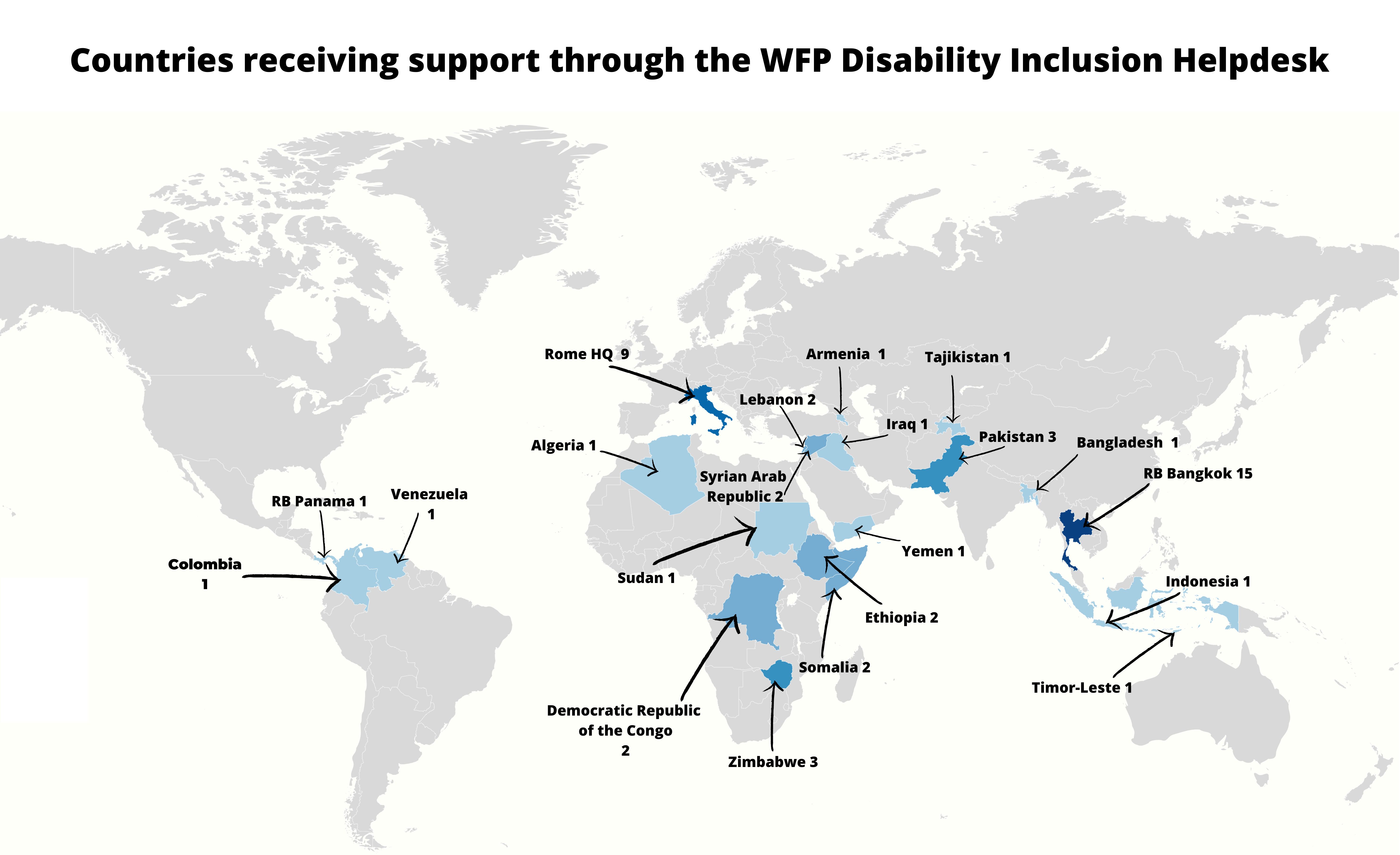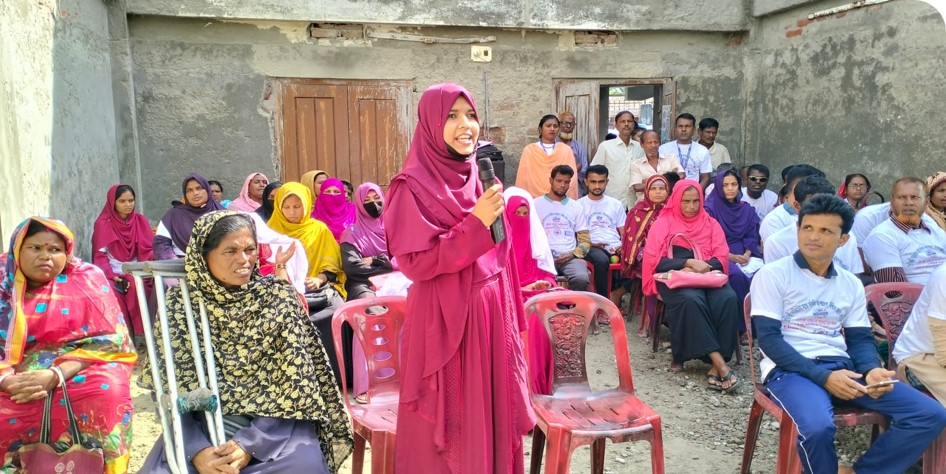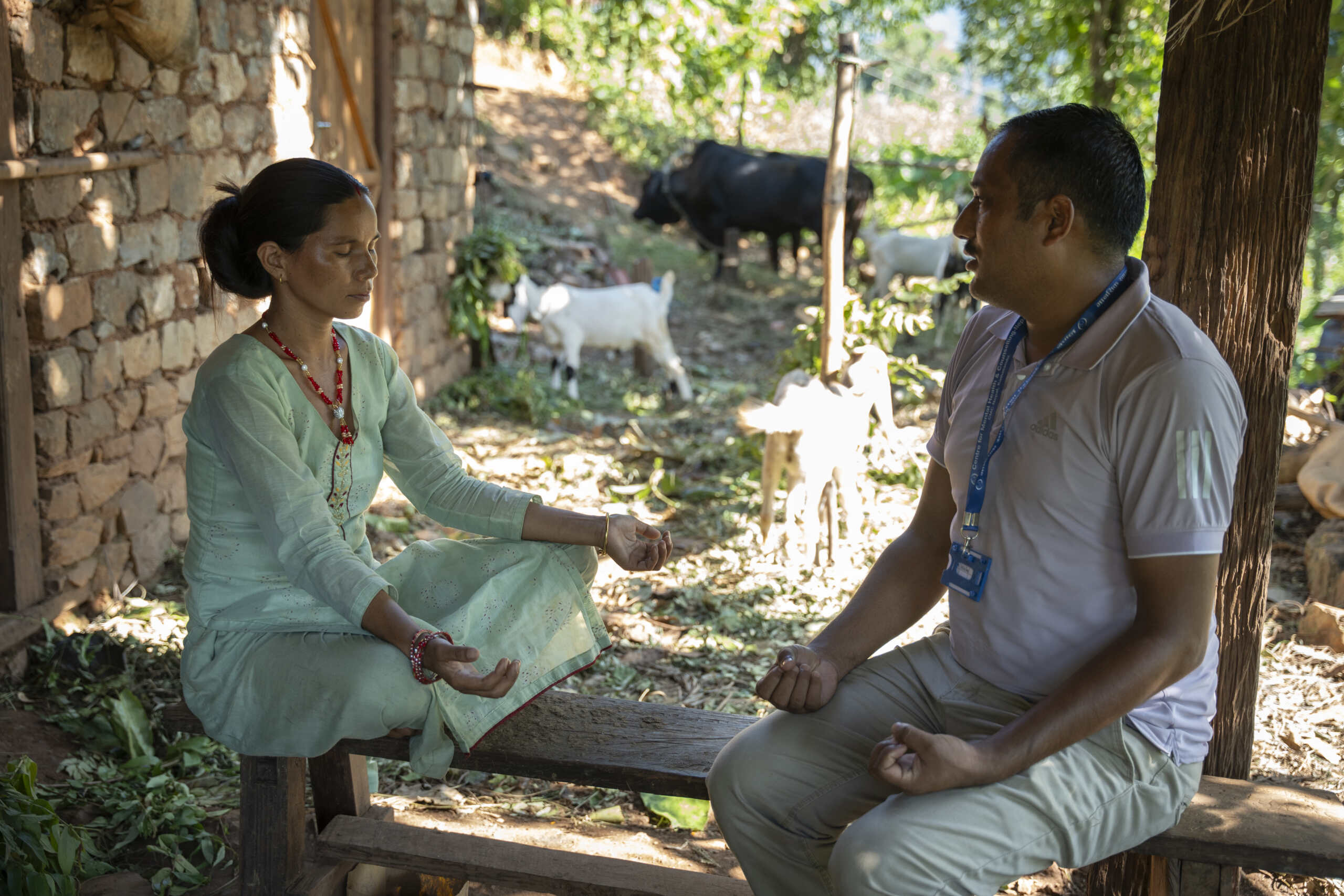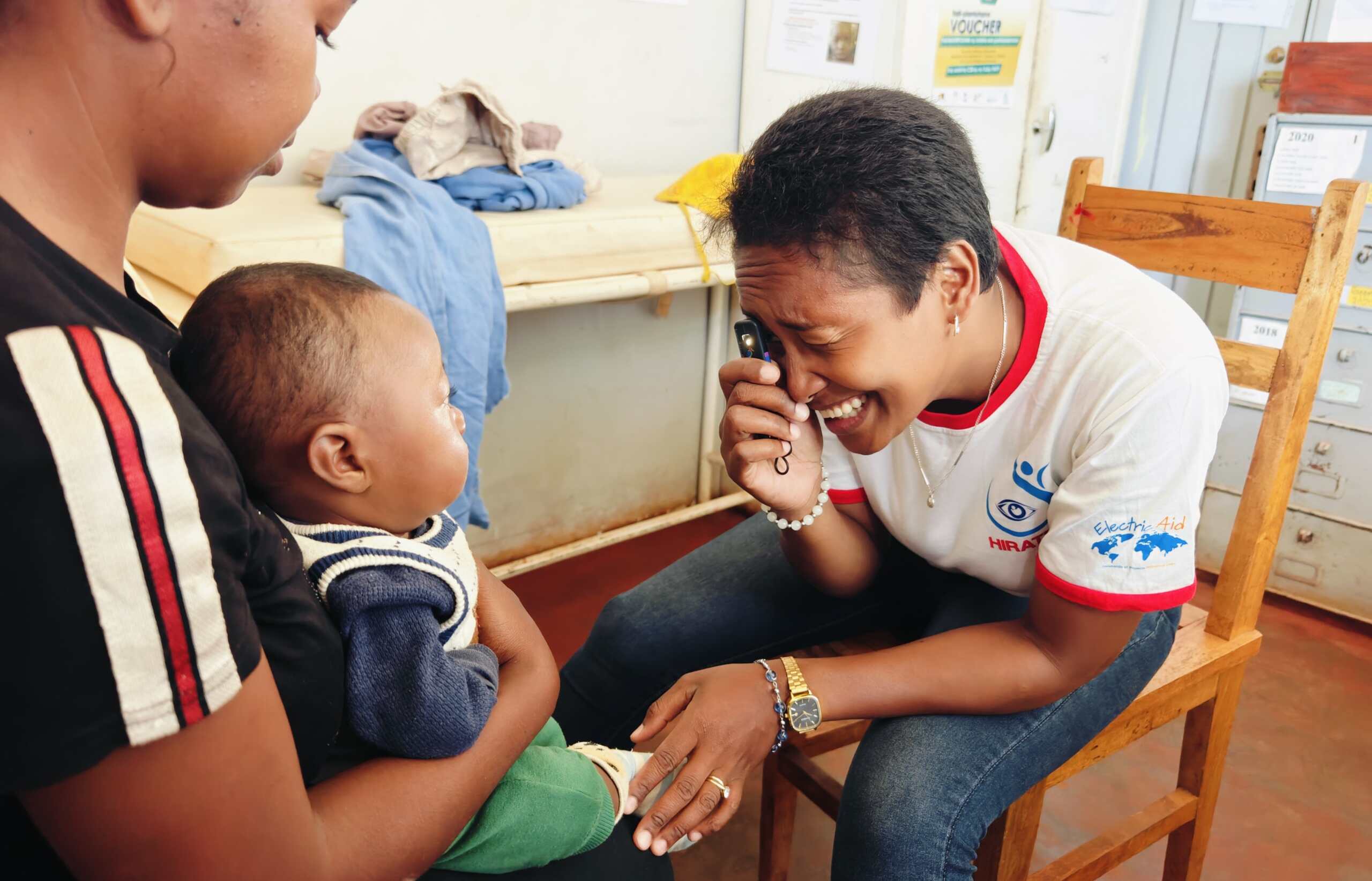Supporting the World Food Programme – six months in
News, News-iag | January 26, 2025
The Inclusion Advisory Group (IAG), an initiative of CBM Global Disability Inclusion, continues to go from strength to strength, growing its formal partnerships with governments, global humanitarian actors and development practitioners to enhance disability inclusion.
In 2021, IAG formed a partnership with the World Food Programme (WFP), joining forces to launch a Disability Inclusion Helpdesk that supports WFP programmes to reach, and be inclusive of, people with disabilities.
As of March 2022, the WFP Disability Inclusion Helpdesk has been operational for six months. In this short space of time, the Helpdesk has attracted 67 WFP employee users and raised more than 39 Helpdesk tasks.

Since its launch, WFP employees have been able to actively reach out via the platform, ask questions and receive technical support from IAG’s advisors and associates. Utilisation of the Helpdesk has been diverse, reaching all layers of the organisation. Requesters have been supported from 19 distinct locations, including WFP headquarters, two regional bureaux, 10 country offices, and six different Sub or Area Offices. There has been demand for the Helpdesk across geographic areas, including South and Southeast Asia and the Eastern and Southern Africa regions.
Aligning with the priorities of the disability movement and enabling OPDs to influence stakeholders through advisory work is integral to the approach of IAG. WFP have committed to fostering partnerships with OPDs and have produced an internal guidance note adapted from the UNDIS guidance on consulting persons with disabilities. IAG have supported WFP’s efforts through the Helpdesk by supporting country offices to reach out and engage with OPDs and by facilitating the participation of OPD representatives in country-level activities.
Helpdesk tasks are many and varied and while most requests (38%) are to seek general guidance others are more targeted. For example:
- A full-day training session on disability inclusion to 11 staff from one country team who have responsibility for protection, gender equality, and inclusion.
- Advice on methodology to engage with the disability movement and conduct mapping of key organisations of people with disabilities to engage with in one country.
- A checklist to ensure accessible shelter, WASH, food and nutrition assistance within a refugee camp or temporary shelter contexts.
- Supporting a country office team with their school meals programme, which has subsequently grown to include schools specifically serving children with disabilities. The advice helped WFP adapt the programme to meet the needs of children with disabilities including understanding their food and nutrition requirements.
IAG is proud to have built a Disability Inclusion Helpdesk that is useful and valued by WFP staff. As we continue the partnership, IAG are also working with OPDs to strengthen systems to enable OPDs and their members to provide advisory services to WFP more systematically, for example, to audit the accessibility of WFP’s programme locations and communications or to improve inclusion of people with disabilities in WFP’s community engagement processes.
In years to come, we hope this partnership will further enhance disability inclusion within WFP’s programming to ensure they are able to reach people with disabilities – which is essential if we are to achieve a zero-hunger world.
https://cbm-global.org/news-iag/inclusion-advisory-group-supporting-world-food-programme-six-months
Other IAG Projects

Achieving resilience for all requires funding disability inclusion in DRR
On International Day for Disaster Risk Reduction (DRR) 2025,...

The Vital Role of Mental Health and Psychosocial Support in Humanitarian Emergencies
Why Mental Health Cannot Be Overlooked When disasters strike, whether...

Lighting the Path to Sight: How Early Eye Screening is Changing Children’s Futures in Madagascar
Every child deserves the right to sight In Madagascar, thousands...
